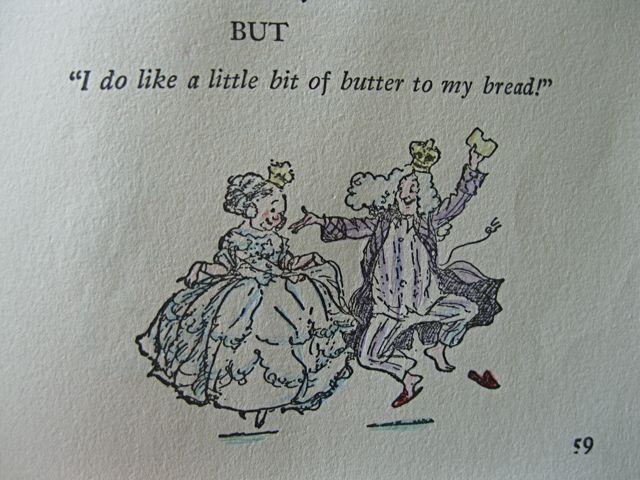Note: If you wish to receive, via e-mail, (1) my weekly newsletter or (2) daily copies of these posts, notify me at rrbates1951@gmail.com and indicate which you would like. I promise not to share your e-mail address with anyone. To unsubscribe, send me a follow-up email.
Monday
Following the coronation of King Charles III on Saturday, I found myself thinking about how literature has shaped my vision of British monarchs. Major influences have been the poetry of A.A. Milne, The Adventures of Robin Hood, and (later in life) Shakespeare’s history plays, which allow me to sort out the Lancasters and the Yorks in the War of the Roses.
Milne, however, seems to have left the deepest mark, and I can still recite both “King John’s Christmas” and “The King’s Breakfast.” Given how many people seem to be dismissing Charles as irrelevant or worse, perhaps the first of the two poems captures the way he is being treated:
King John was not a good man —
He had his little ways.
And sometimes no one spoke to him
For days and days and days.
And men who came across him,
When walking in the town,
Gave him a supercilious stare,
Or passed with noses in the air —
And bad King John stood dumbly there,
Blushing beneath his crown.
Why King John is bad Milne never explains, although as one of the villains in the Robin Hood saga—he opposes the return of the true king, his brother and crusader King Richard the Lion-Hearted—he has certainly gotten bad press.
Charles III has sometimes been described (perhaps unfairly, I don’t know) as overly concerned with trivial matters, which is the case with the monarch in “The King’s Breakfast.” Children like the bounciness of the poem, and they also relate to how the king is being told what he should want rather than what he actually wants. After the cows says he should prefer marmalade to the butter he asks for, he goes to bed in a pout:
The King said,
“Bother!”
And then he said,
“Oh, deary me!”
The King sobbed, “Oh, deary me!”
And went back to bed.
“Nobody,”
He whimpered,
“Could call me
A fussy man;
I only want
A little bit
Of butter for
My bread!”
As a child, I loved the image of the king sliding down the bannisters when he finally gets his wish:
The Queen took
The butter
And brought it to
His Majesty;
The King said,
“Butter, eh?”
And bounced out of bed.
“Nobody,” he said,
As he kissed her
Tenderly,
“Nobody,” he said,
As he slid down the banisters,
“Nobody,
My darling,
Could call me
A fussy man –
BUT
I do like a little bit of butter to my bread!”
Speaking of English kings, there’s a great mnemonic for remembering Britain’s monarchs going back to William the Conqueror. Richard III gets called “Dick the Bad”—I complained about this in a recent post—but it’s handy for getting everyone straight:
Willie Willie Harry Stee
Harry Dick John Harry three;
One two three Neds, Richard two
Harrys four five six….then who?
Edwards four five, Dick the bad,
Harrys (twain), Ned six (the lad);
Mary, Bessie, James you ken,
Then Charlie, Charlie, James again…
Will and Mary, Anna Gloria,
Georges four, Will four Victoria;
Edward seven next, and then
Came George the fifth in nineteen ten;
Ned the eighth soon abdicated
Then George six was coronated;
After which Elizabeth
And that’s all folks until her death.
Now we just have to figure out to get Charles III in the poem.
Past post
King Charles poems (Charles I and II)


